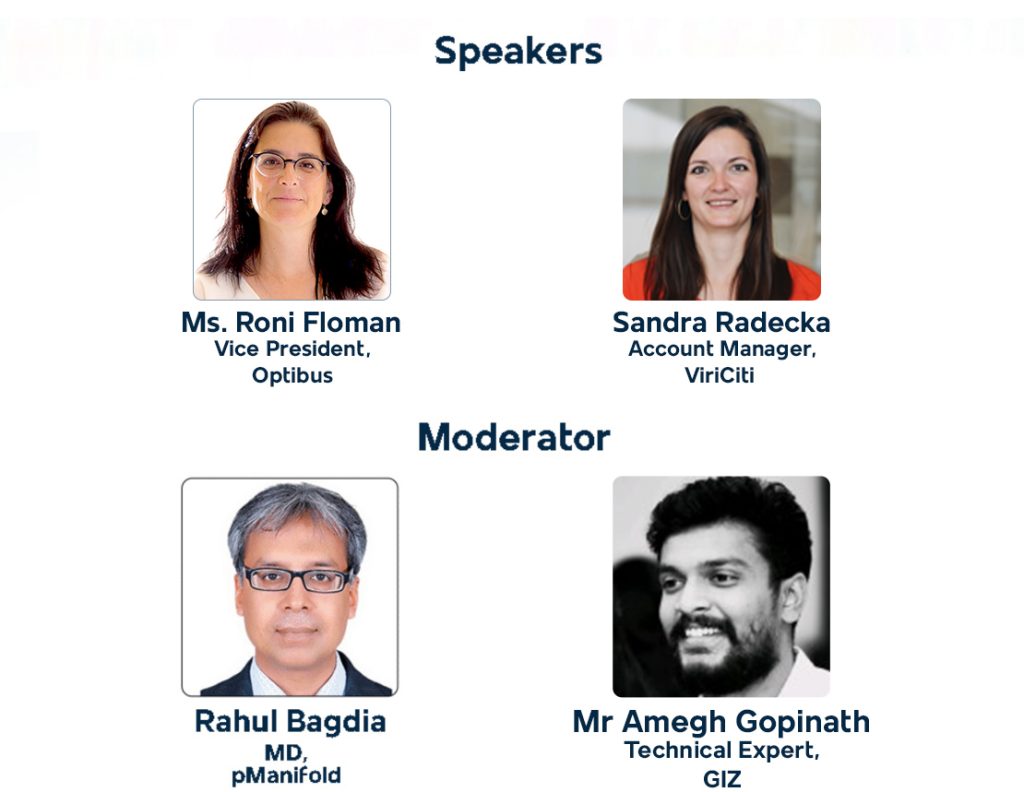
e-Buses Operations and Monitoring: Smart Planning, Scheduling and Charging
Most Depots having e-Bus fleet today are also having much bigger ICE bus fleet with established legacy systems and processes.e-Buses systematic planning, daily scheduling and charging operations are not well coordinated for efficient operations. The selected routes for e-Buses are not checked for energy kWh consumption in different hours of the day under different city loading conditions and showing huge variations. The schedules are not prepared keeping in mind these SOC/range variations in one full-charge and need for intermittent charging time (with given chargers’ locations and availability). This is resulting into high number of stand-by e-Buses at Depot to service schedules while returning e-Buses are put on-charge, leading to lower kms/day utilization of e-Buses relative to ICEs. Most monitoring is done through manual logs and there is not strong data analytics and control to improve overall performance, utilization and costs. The multi-charger operations throughout the day are not auto monitored and controlled for optimal peak power management and overall cost of electricity.
There is strong need for Operators and STUs to improve Monitoring and Controls of e-Bus daily Operations for deriving best performance possible with already procured costly assets, and fully realise e-Bus advantages. The 3rd Webinar under the e-Mobilogues series brings global practitioners, who will share their experiences and best practices around improving e-Bus Operations and Monitoring, with special focus on Planning, Scheduling and Charging. This Webinar will help understand and answer following top questions:
- What key differences in the Planning and Scheduling of e-Buses compared to conventionalICE buses, and how best to undertake it?
- Once e-Buses procurement and charging infrastructure setup are completed, what set of analysis and inputs are to be used for routes selection and developing daily schedules for achieving higher km per day e-Bus utilization?
- What smart monitoring and charging elements can bring useful control for overall healthy and optimal e-Bus, batteries and charging performance?
- What learnings to draw from current pilot deployments to 1) improve current e-Bus operations and ROI and 2) improved next planning and procurement of e-Buses?



